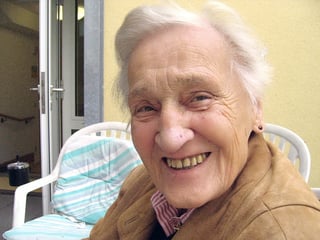3 Common Myths about Parkinson’s Care debunked
Candace McCarty | Apr 12, 2018
Parkinson's disease results from a loss of the brain chemical dopamine. 1 in 100 people over the age of 50 and 2 in 100 people over the age of 70 are affected. These numbers are increasing as awareness has lead to earlier detection. Unfortunately, there is no cure at this time. However, it is quite possible to live a full life with Parkinson's disease.
About Parkinson’s
 Because the signs and symptoms of Parkinson’s disease can vary greatly from person to person, diagnosis can be difficult. Symptoms can go unnoticed by friends, families, physicians, and even the individuals themselves. Commonly, Parkinson's affects mobility, facial expression and speech, cognitive processing and sequencing. However, everyone displays signs and symptoms differently. As a result, there are a few common myths surrounding Parkinson’s disease. Understanding the disease and how it can affect your loved one is key to securing quality care.
Because the signs and symptoms of Parkinson’s disease can vary greatly from person to person, diagnosis can be difficult. Symptoms can go unnoticed by friends, families, physicians, and even the individuals themselves. Commonly, Parkinson's affects mobility, facial expression and speech, cognitive processing and sequencing. However, everyone displays signs and symptoms differently. As a result, there are a few common myths surrounding Parkinson’s disease. Understanding the disease and how it can affect your loved one is key to securing quality care.
Myth #1: All Individuals with Parkinson’s Experience Tremors
Although common among individuals with Parkinson’s disease, tremors are not a symptom for everyone with the disease. The primary symptoms of Parkinson’s disease that affect an individual’s motor skills are:
- Tremors
- Slowness
- Stiffness
- Balance Problems
But, each individual with the disease experiences symptoms differently.
Myth #2: There’s Nothing You Can Do
There is currently no cure, but methods of Parkinson’s care and symptom management do exist. Diagnosis does not have to equal acceptance. In addition to medical treatments, there are drug-free, non-surgical ways to make living with this disease more manageable.
Making dietary changes to include low protein, high fiber foods and lots of water eases digestive symptoms. Similarly, even more than the attention to diet, would be increased emphasis on exercise, along with the positive impact of available medications for symptoms. There are also spinal simulators that can be helpful if someone is diagnosed in the earliest stages.
Myth #3: Quality Parkinson’s Care is Too Expensive
While any and all medical treatments and procedures are associated with cost, obtaining quality Parkinson’s care doesn’t need to break the bank. Instead, it’s about recognizing the resources at hand and making use of them.
Many individuals with Parkinson’s respond to relatively low-cost medical treatments, such as physical therapy, occupational therapy, and speech therapy. These interventions, in conjunction with appropriate dietary changes, can alleviate symptoms and make living with Parkinson’s disease more manageable.
The Importance of Proper Parkinson’s Care
For individuals with Parkinson’s, there is no one-size-fits-all treatment plan, but there are multiple steps you and your loved one can take toward management. Having access to proper care can mean the difference between living in comfort or discomfort and retaining independence or becoming dependent.
At Walker Methodist, we’re committed to providing the best possible care to our Residents with Parkinson’s disease. As a member of the Struthers Parkinson’s Care Network, our staff receives training and education specific to Parkinson’s disease. This means our dedicated staff is trained to recognize and understand the complex symptoms of Parkinson’s disease. Along with awareness, our staff are armed with resources and support networks for individuals and families dealing with this disease.

